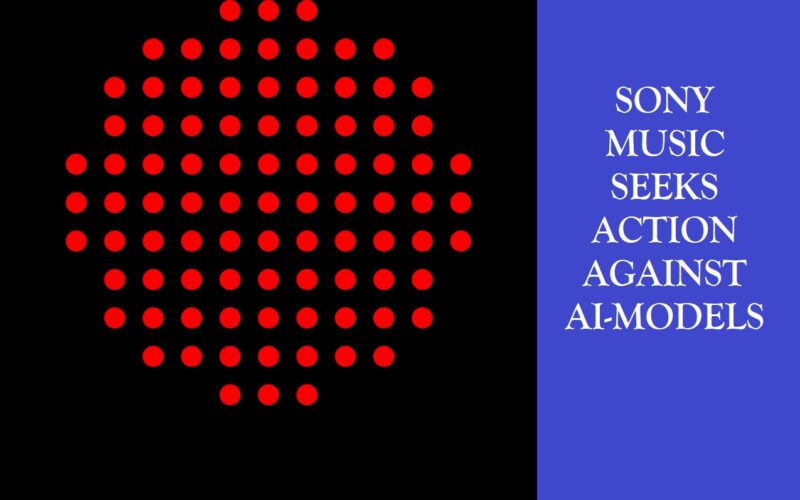A recent news about Sony Music Group and AI has brought back the question of whether AI should be able to take your content in name of “learning”! Is it okay for AI to use so much information that is available on Internet through various websites owned privately by people? How is that fair use? Let us discuss this matter with all the data that we have.
What is the Sony Music Group’s Case Against AI Models?
As per a report by NBC, Sony Music Group (SMG), representing a staggering 25% of the global recorded music market and artists with a combined social media following exceeding 2.7 billion, has taken a firm action against the unauthorized use of its copyrighted music for AI training and development. The company has issued a serious warning to over 700 technology companies, demanding transparency on how their AI models utilize SMG’s vast catalog of an estimated 175,000 songs.
Why AI models using music owned by companies Sony is a big concern?
This action comes at a time when a big discussion in the music industry about relationship with AI is going on. According to the Recording Industry Association of America (RIAA), the recorded music industry generated $15.9 billion in revenue in 2022, with streaming accounting for a significant 84% of that total. As AI-powered music generation tools become increasingly advanced at scraping information from web, the potential for copyright infringement and revenue loss for artists and labels alike seems a big concern.
Also read this: File permission in Android can make apps steal your data.
Can AI Steal Our Content Without Permission?
The short answer is: Yes, it can.
In the name of AI model training, AI models learn by analyzing massive datasets, which often include copyrighted material like music, images, and text. The question of whether this constitutes fair use or copyright infringement is a subject of ongoing debate and legal challenges.
While some very stupidly argue that AI’s use of copyrighted material could fall under fair use, others contend that it undermines the rights of creators and could lead to a devaluation of their work. Sony Music’s recent action highlights the music industry’s determination to protect its intellectual property and ensure fair compensation for artists in the age of AI.
Our take on whether AI should be allowed to use copyrighted content for training
Talkshubh thinks that it is totally unethical for AI models to use content owned by others to teach their AI models. It is unfair because of multiple reasons:
- AI models make money using the information which is actually owned by someone else. This doesn’t fall into fair use policy.
- Music companies have distribution rights which they have earned through royalties and deals made for big amount of money. If they are not paid for their content to be re-used or modified, they are losing money ahead in upcoming years.
- Creativity has its value because it is unique. If AI models steal music without asking for permission from the creative people behind it, it can modify that into countless similar artwork and meanwhile decrease the value of original content.
- AI models don’t always credit the original creator because if they did, it would clearly require them to pay money. In fair use policy, you provide credit to creator or owner of the content so that you do not seem to be claiming to own the creative art you are using.
So our take is simple- AI models should not be able to use any of the content produced by anyone at all until they have either permission granted by the owner or they provide royalty.
OpenAI’s CEO Mira Murati has no answer for whether Sora uses YouTube videos to train itself
To understand whether AI is able to steal your content without permission or not, listen to what Mura Murati, the CEO of OpenAI said about a claim that Sora AI model used millions of YouTube videos to train itself – “I’m unsure of this!” This is what she had to say! Read the news here.
Lack of answers and accountability shows that AI model companies are going to totally neglect the truth- AI is stealing your content!
Sundar Pichai, CEO of Alphabet, spoke against this by saying that he will take action if this is found true. He said that Google has its own terms of service and if OpenAI violated these, Google will take strong action. Read this news on Bloomberg.
Watch the CNBC interview of Sundar Pichai here–
Whatever happens, you can be absolutely sure of the fact that if big companies like Sony Music Group aren’t spared, small creators stand no chance in defending their content against AI models. Future seems dark!
Post your views in the comment below and also share any other legal cases that you find about AI and copyrighted content.
